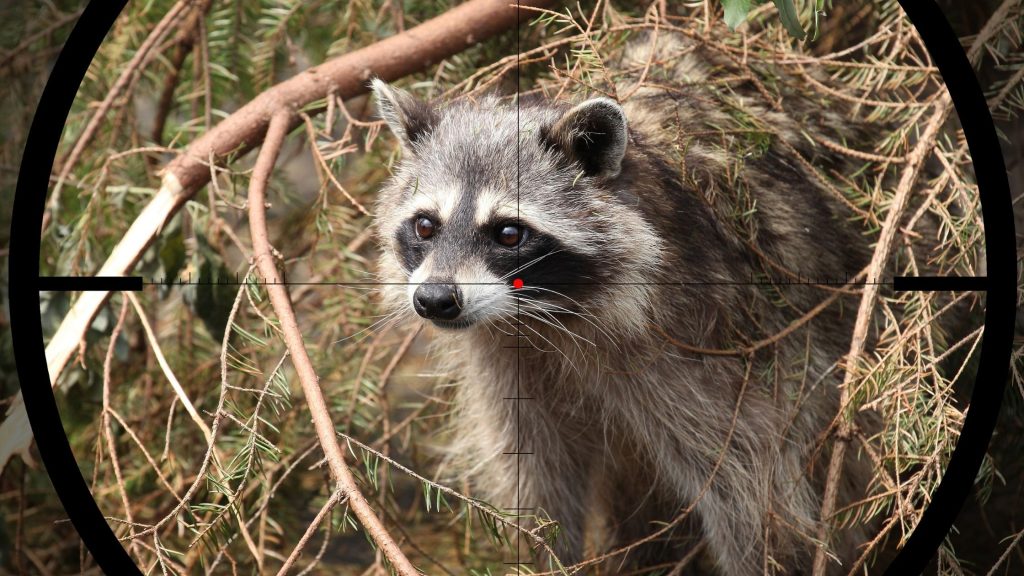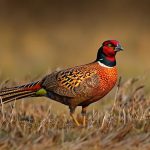Your cart is currently empty!

How to Hunt Raccoons at Night Without Dogs: An Expanded Guide

There’s something uniquely exhilarating about hunting under the cover of darkness. Hunting raccoons, the masked maestros of mischief, presents both a challenge and an adventure. When you embark on this journey without dogs, the experience is amplified. So, if you’re keen to delve deep into the art of how to hunt raccoons at night without dogs, brace yourself for some insider tips.
Table of Contents
Delving Deep into Raccoon Behavior
Hunting any animal requires an understanding of its behavior, but raccoons? They’re a category all on their own.
Natural Habits: The nocturnal world of raccoons is rich with activity. While they might seem cute and nonchalant, they are incredibly resourceful. One night, I watched a family of raccoons collaborate to open a secured trash can. Their team effort was something straight out of a heist movie!
Night Activity: The majority of a raccoon’s life unfolds under the moon. They forage, interact, and occasionally engage in antics that seem purely for entertainment. This makes night hunting both challenging and rewarding.
Gearing Up: Essential Equipment for Night Hunting
The right gear can be the difference between a successful hunt and a night of frustration.
High-Quality Lighting: Investing in a durable flashlight or headlamp, preferably with adjustable brightness and red or green filters, is crucial. A lesson I learned the hard way? Always pack extra batteries!
Noise Reduction Gear: Silence is golden. Soft-soled boots have often been my best ally, allowing me to approach raccoons stealthily. Quiet, rustle-free clothing can similarly enhance your sneaking ability.
Firearms and Ammunition: While .22 caliber rifles are often favored, it’s vital to ensure they’re cleaned and maintained. Also, familiarize yourself with local regulations regarding raccoon hunting calibers and ammo types.
Safety First: Remember, other hunters might be around. Always wear reflective vests. Two-way radios can be lifesavers, especially if you’re hunting in a group or vast area.

The Art of Scouting: Identifying Prime Hunting Spots
Knowing where to look is half the battle.
Raccoon Signs: Tracks, droppings, and feeding remnants can guide you to prime raccoon territories. On one occasion, after identifying a trail of half-eaten fruits, I positioned myself nearby and witnessed a parade of raccoons passing through.
Raccoon Routes: Natural pathways, especially those leading to water sources, are raccoon highways. Such routes often guarantee sightings if you’re patient.
Mastering Baiting and Luring Techniques
Raccoons are curious creatures. Tapping into this curiosity can be your ticket to a successful hunt.
Bait Types: While raccoons have diverse palates, they can’t resist certain treats. I’ve experimented with various baits, but a combination of marshmallows, fish, and cat food always seems to be a hit.
Sound Lures: Recorded raccoon chatters or distress calls can pique their interest. Play them intermittently for maximum effect. There’s nothing quite like seeing a raccoon react to a sound lure, trying to decode the source.
Visual Lures: Movement triggers raccoon curiosity. Simple tools like a wind chime or even a feather on a string can work wonders.
Upholding Ethical and Safe Hunting Practices
Ethics should be the backbone of any hunting endeavor.
Humane Hunting: Always aim for a clean shot to ensure minimal suffering. Remember, hunting is about balance and respect, not just the thrill.

Abiding by Regulations: Ensure you’re familiar with the local hunting seasons, license requirements, and any other regulations. Responsible hunting guarantees the sport for future generations.
Related Questions
- Why opt for dog-free hunting? Hunting without dogs is often seen as a purer form of the sport, relying solely on human skills and intuition.
- How do weather patterns affect raccoons? Cold, rainy nights might see reduced raccoon activity, but remember, these critters are adaptable. Changing your strategy according to the weather can yield results.
- Any specialized tools to recommend? Night vision scopes and thermal cameras can provide a significant edge, but they do come with a learning curve.
Conclusion
Learning how to hunt raccoons at night without dogs is an enriching journey that hones your hunting skills and deepens your connection to the wild. With the right preparation, understanding, and respect for these nocturnal critters, you’re in for nights filled with adventure and unforgettable memories. Stay safe and happy hunting!

Herb has been a longtime lover of the outdoors. Whether it be hunting, camping, fishing or just getting outside to reset. Proud father and animal lover. Bourbon anyone?

by
Tags:
Comments
3 responses to “How to Hunt Raccoons at Night Without Dogs: An Expanded Guide”
-
[…] It made me realize: these critters aren’t just creatures of the night. And so began my daytime raccoon hunting […]
-
[…] distances and suitable release habitats. If your intent is hunting, first ascertain that hunting raccoons is permitted in your state and that you’re compliant with all hunting regulations. In cases where […]
-
[…] If you’re an avid elk hunter, you know that having the right gear is essential for a successful hunt. But what about the other types of hunting? If you’re interested in expanding your hunting skills, you might want to check out this article on “How to Hunt Raccoons at Night Without Dogs” from Old Oak Syndicate. It’s a great resource for those looking to try their hand at raccoon hunting and offers valuable tips and techniques. So whether you’re gearing up for an elk hunt or exploring new hunting opportunities, be sure to check out this informative article. Read more here. […]

Categories
- Big Game Hunting (301)
- Deer (202)
- Reviews (3)
- Shooting (16)
- Slingshot (1)
- Small Game Hunting (42)
- Upland Hunting (126)
- Waterfowl Hunting (3)





Leave a Reply